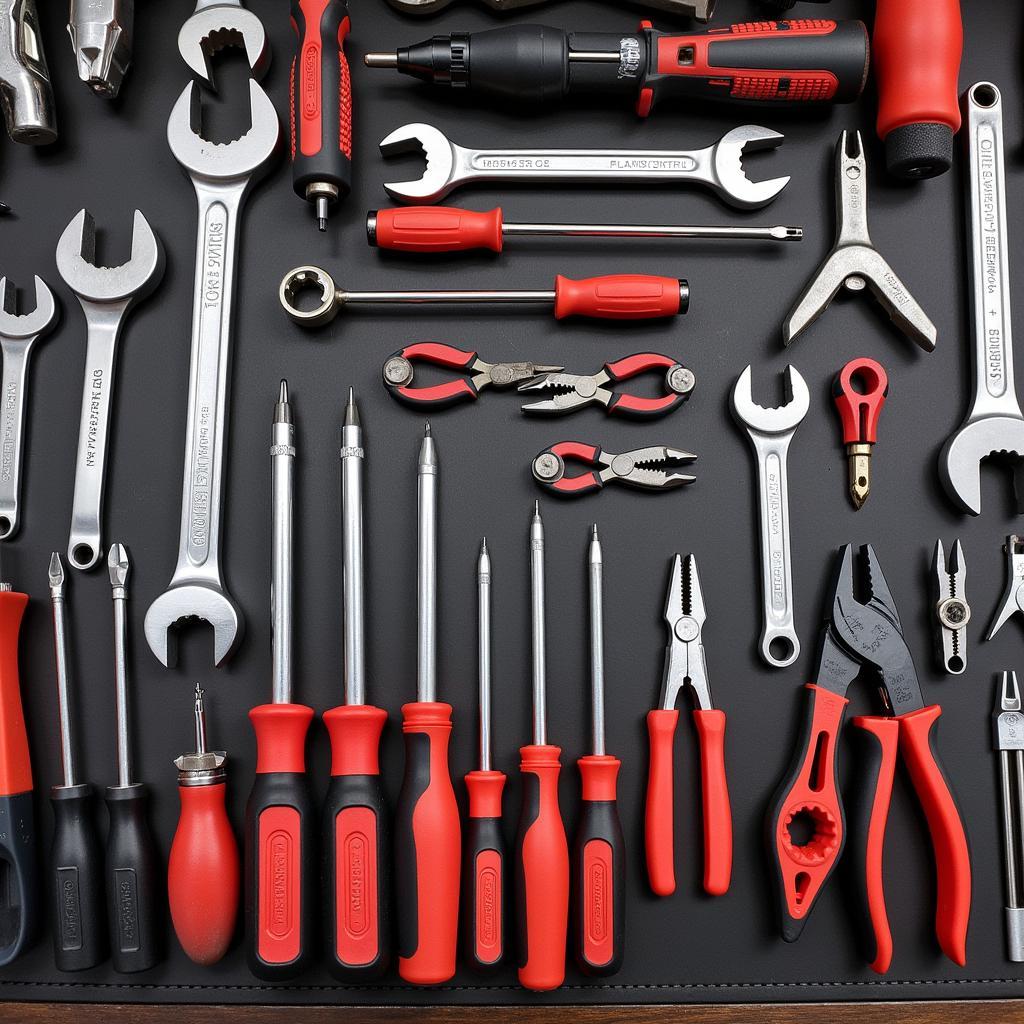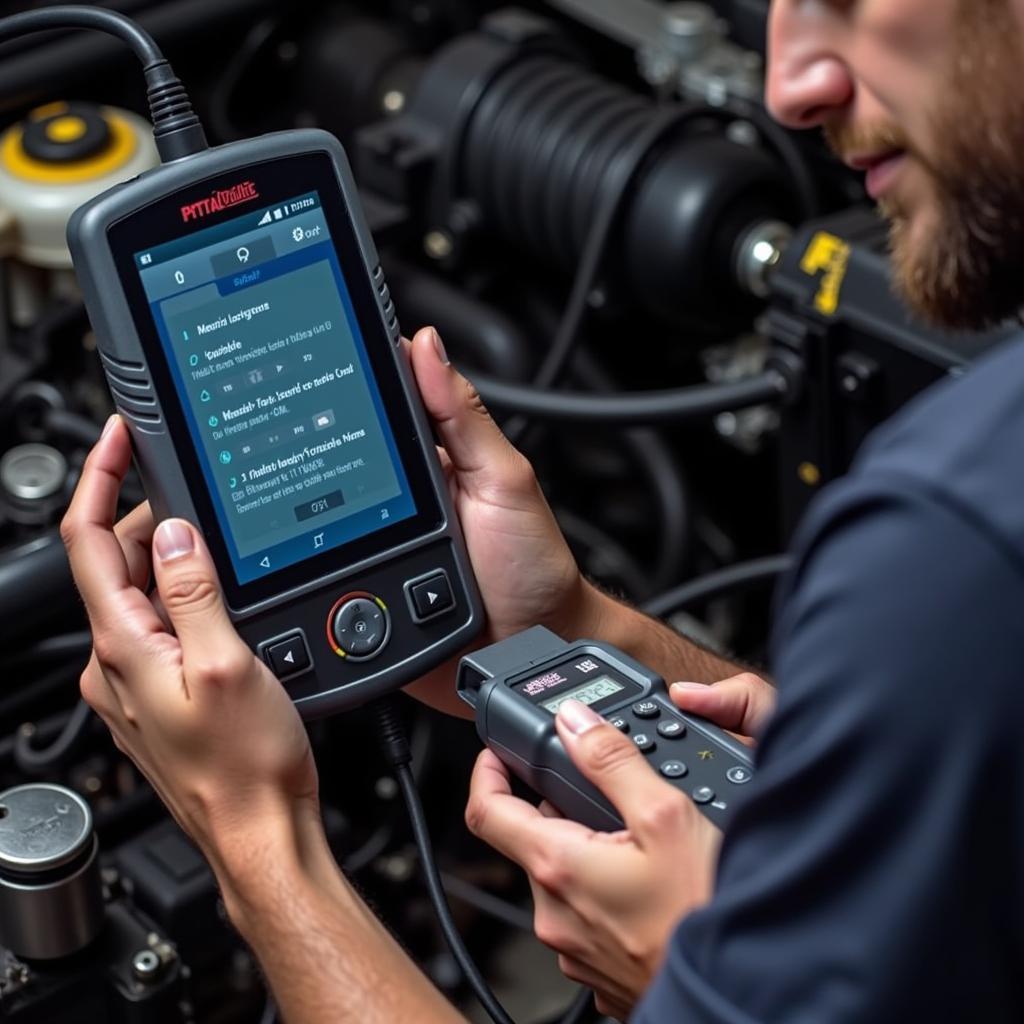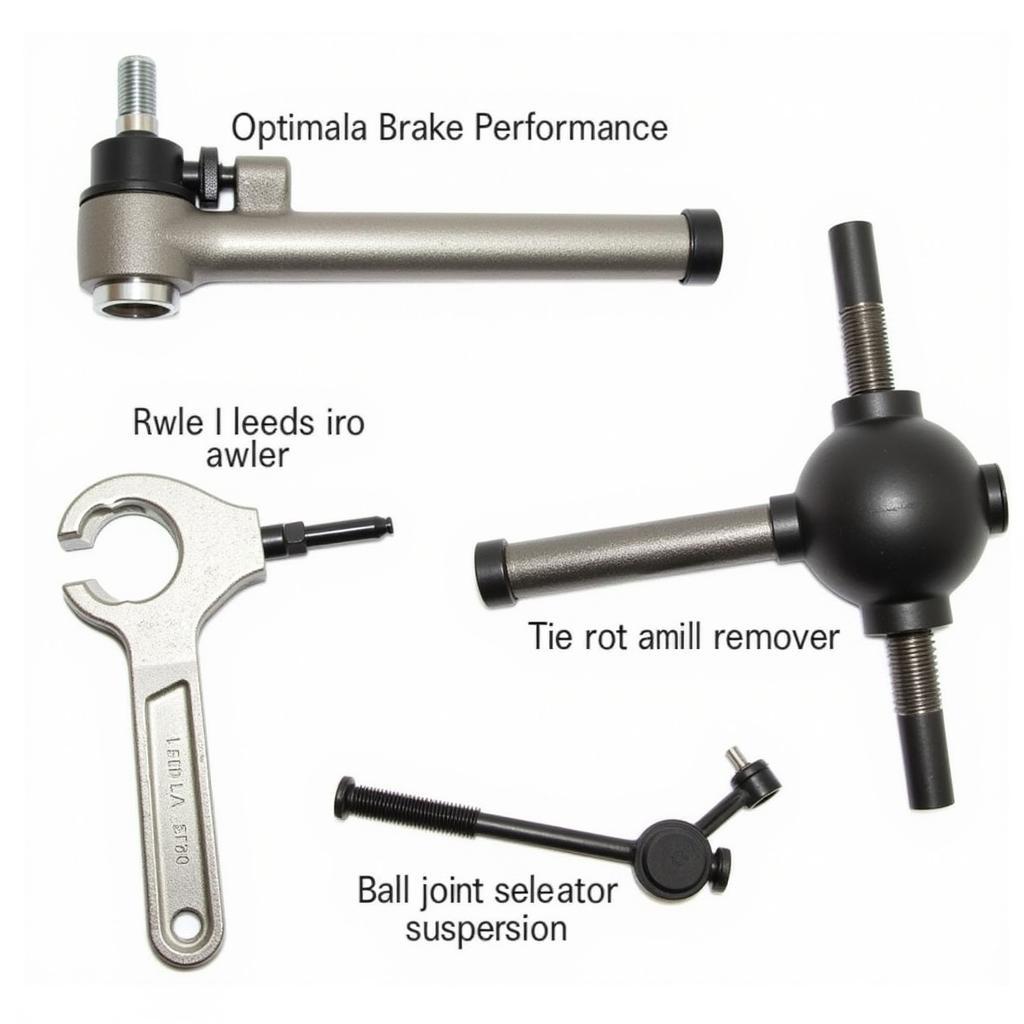Car Tools With Names form the backbone of any automotive workshop, whether you’re a professional mechanic or a DIY enthusiast. Knowing the correct name for each tool is crucial for effective communication, efficient repairs, and building a well-organized toolbox. This guide will explore various essential car tools, their names, and their specific applications, providing you with the knowledge to tackle any automotive challenge.
After this opening paragraph, let’s dive into the world of car tools and explore some commonly used tools. For a broader look at garage tools, check out our car garage tools names.
Essential Hand Tools for Every Mechanic
Every mechanic needs a solid foundation of hand tools. These tools are the workhorses of the automotive world, enabling a wide range of tasks from simple oil changes to complex engine rebuilds.
- Wrenches: These are arguably the most common car tools, used for tightening and loosening nuts and bolts. They come in various types, including open-end wrenches, box-end wrenches, combination wrenches, and adjustable wrenches.
- Screwdrivers: Essential for working with screws, screwdrivers come in a variety of head types, including Phillips, flathead, Torx, and Robertson. Having a set of different sizes and head types is crucial for any car enthusiast.
- Pliers: Used for gripping, cutting, and bending, pliers are versatile tools found in every toolbox. Common types include slip-joint pliers, needle-nose pliers, and locking pliers.
- Sockets and Ratchets: These tools provide leverage and speed when working with nuts and bolts, particularly in tight spaces. Socket sets come with various sizes and drive sizes, catering to different bolt heads.
 Essential hand tools including wrenches, screwdrivers, and pliers laid out on a workbench.
Essential hand tools including wrenches, screwdrivers, and pliers laid out on a workbench.
Diagnostic Tools for Modern Vehicles
Modern vehicles rely heavily on electronics, making diagnostic tools indispensable for troubleshooting and repair.
- OBD-II Scanners: These tools connect to the vehicle’s onboard diagnostic system, allowing mechanics to read and clear diagnostic trouble codes (DTCs). They are crucial for identifying the root cause of various vehicle issues.
- Multimeters: These versatile tools measure voltage, current, and resistance, helping diagnose electrical problems. They are essential for checking battery health, testing circuits, and identifying faulty components.
- Pressure Gauges: These tools measure pressure in various systems, such as the cooling system, fuel system, and tires. They are crucial for ensuring proper system operation and identifying potential leaks.
Are you curious about specific car key programmers? Check out this helpful resource on auto locksmith tool car key programmer ck-100 ck100.
 A mechanic using an OBD-II scanner to diagnose a car’s engine control unit (ECU).
A mechanic using an OBD-II scanner to diagnose a car’s engine control unit (ECU).
Specialized Car Tools and Their Uses
Some automotive tasks require specialized tools for efficient and accurate repairs.
- Brake Bleeders: These tools are used to remove air from the brake lines, ensuring proper brake function. They come in various designs, including manual and vacuum bleeders.
- Tie Rod End Removers: These tools simplify the process of removing and installing tie rod ends, which are crucial components of the steering system.
- Ball Joint Separators: These tools are designed to safely separate ball joints from the control arms, making suspension repairs easier.
“Knowing the correct car tools with names is like speaking the language of automotive repair,” says John Smith, Senior Automotive Technician at DiagFixPro. “It allows for precise communication and ensures everyone is on the same page during complex repairs.”
Need help assembling your car tool box? Check out car tool box items for a comprehensive list.
 A set of specialized car tools, including a brake bleeder, tie rod end remover, and ball joint separator.
A set of specialized car tools, including a brake bleeder, tie rod end remover, and ball joint separator.
Conclusion
Understanding car tools with names is fundamental for anyone working on vehicles. From basic hand tools to advanced diagnostic equipment, knowing the correct terminology empowers you to effectively communicate, diagnose problems, and perform repairs. By equipping yourself with the right tools and knowledge, you can confidently tackle any automotive challenge. Keep learning and expanding your toolkit, and you’ll be well-prepared for any automotive adventure.
“Investing in high-quality car tools with names you recognize and trust is an investment in your safety and the longevity of your vehicle,” adds Jane Doe, Lead Diagnostic Specialist at DiagFixPro.
FAQ
- What are the most essential car tools for beginners?
- What is an OBD-II scanner used for?
- How do I choose the right socket set for my needs?
- What are the different types of pliers and their uses?
- Where can I find quality car tools at affordable prices?
- How do I maintain my car tools to ensure their longevity?
- What are some common mistakes to avoid when using car tools?
Need additional information on specific tools? Check out our other helpful resources on foot care tools names and can the zr15 scan tool put cars into service mode.
For further assistance, feel free to contact us via WhatsApp: +1(641)206-8880, Email: [email protected] or visit us at 910 Cedar Lane, Chicago, IL 60605, USA. We offer 24/7 customer support.

Leave a Reply